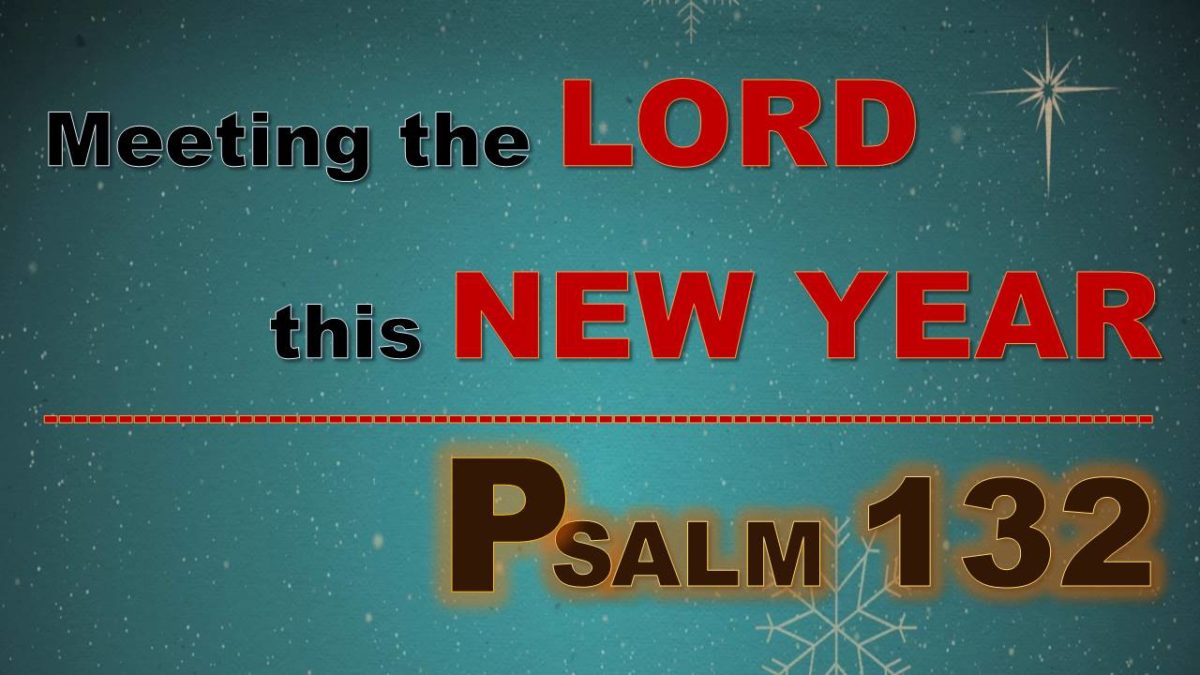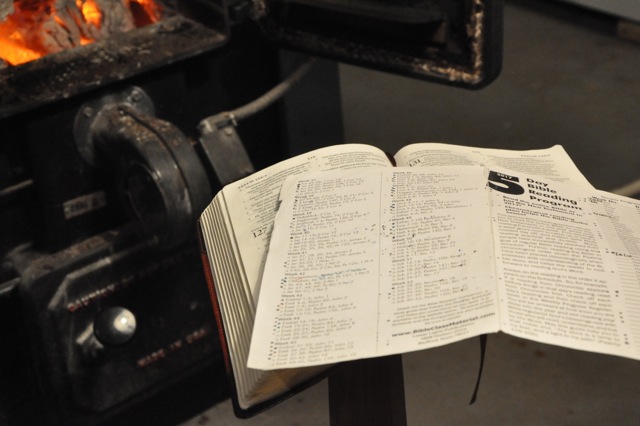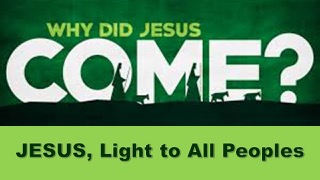What are you looking forward to this New Year?
Our family does this thing every few years. Call it “family visioning”. We gather everyone together and list out what we consider our strengths, our growth areas, and dreams. Back in 2015—before we’d caught the slightest whiff of Northwoods life—we listed out our dreams: more functional kitchen … chickens … wood-burning stove (that was mine!) … becoming better fixer-uppers … and living on a ranch (one of the boys).
Uncanny. With the exception of the last item (please, no!), the LORD has blessed our desires. He didn’t have too, but here we are …
Psalm 132 is a great psalm for New Year’s, because it’s about looking back to someone with great desires whom God blessed. It’s also, then, about looking forward to the fullness of what God is doing.
One of the Psalms of Ascent (Psalms 122-134) which the Nation would sing as they’d go up to the Temple Mount to meet with the LORD, Psalm 132 looks back to 2 Samuel 7. In that earlier passage David (after conquering his enemies and moving to Jerusalem) aspired to build a dwelling place (a meeting place) for the LORD, who at that time chose to localize His presence above the Ark of the Covenant, to which His people could come and meet with Him.
You remember the story. In that same passage, God stopped David, saying, You’re not to build the Temple for me, but your son will. But, further:
… your house and your kingdom shall be made sure forever before me. Your throne shall be established forever (2 Sam 7.16)
This, of course, looks to Jesus, who reigns presently, and is coming back to take His throne! But, for Israel, before the coming of Jesus, the goodness and rightness of Israel’s hope to meet with the LORD is brought about by David’s desire to build a dwelling place for the LORD and by the LORD’s promise of the Messiah to dwell with His people forever.
For us in our churches today, Psalm 132 gives us a clue what we ought to be looking forward to in the coming year.
This New Year we get to look forward to gathering with God’s people! The psalmist appeals to God to remember and honor how David wanted to make a special place to meet with the LORD (:1-5).
I will not enter my house or get into my bed … I will not give sleep to my eyes or slumber to my eyelids … until I find a place for the LORD (:3-5).
The psalmist, then, goes on to record Israel’s response in following David and, finally, a further appeal to God to accept the present king, whomever he might have been at the time:
For the sake of your servant David, do not turn away the face of your anointed one (:10).
I catch a little insecurity here, don’t you? Of course, God’s promise of remaining on the throne was conditioned on obedience for each of David’s kingly descendants. Those who did not seek the LORD (and, most didn’t) were removed.
This brings us to the reason we can look forward to gathering in our church’s this New Year. God will meet with His people, because of the active obedience of Christ! And, more, God meets with us, because He chooses to dwell in the midst of His people whom Paul calls the Body of Christ. Your church is a local chapter of this Body, and you can meet there with God’s people without insecurity, because of Jesus’ work.
Great as that is, there’s something else to which this psalm helps us look forward.
This New Year we, together, get to anticipate Christ’s return. The second half of the psalm records God’s response to David: God’s oath to David (:11-12), God’s choosing of Zion (Jerusalem), to which His Messiah will come (:13-16), and God’s securing of the throne for David in Messiah (:17-18).
For the Nation, as for us, this is yet future. Ah, but there’s so much to look forward to. Note the word pictures: clothing, indicating salvation and righteousness … a horn, a picture from the animal world, indicating dominance … a lamp, showing revelation from God … and then, the crown. Jesus, who reigns presently, will return to establish His reign!
There are three great holidays for Christians, you know. There’s Christmas, which we’ve just celebrated, when we celebrate Christ’s coming. There’s Easter, when we celebrate the finished work of Christ. And then, there’s the Return of Christ.
The last is future. But when we gather with God’s people in our churches, we get to remind one another that God’s plan is really going somewhere: Jesus is really born! … He really died and was raised! … And, He’s really returning for us!
The Old Testament worshipper could celebrate David’s desire to meet with the LORD and then look forward to the fullness of David’s desire, yet to be fulfilled. We get more of the fullness, and together (with God’s people), we get to anticipate the completion of God’s plan for His people.
Let’s look forward this New Year to gathering with God’s people and together anticipating Christ’s return.
How about you? What are you looking forward to in the new year?
How does Psalm 132 change the kind of thing that you desire about 2018?
How does this Old Testament psalm about the Temple worship of the Nation of Israel help you make the connection to Christ? What is still difficult about making the connection to where we are in the Church today?
Besides the truth that Jesus is coming back, what other truths do you encourage each other in when God’s people meet together in churches?





